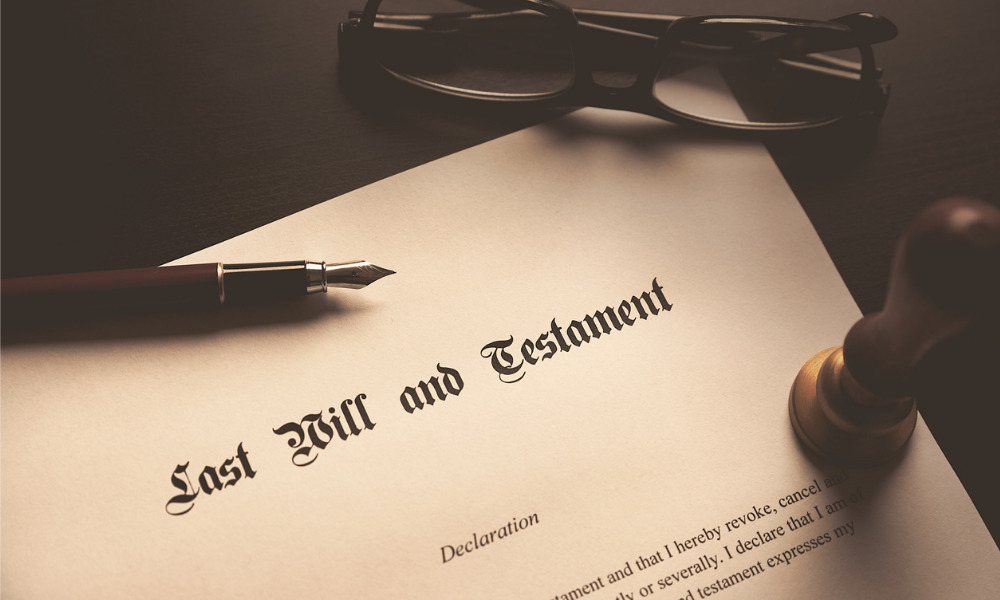
Moral unfairness not a question of law on appeal, says court

The maker of a will does not have a moral obligation to leave a residual beneficiary’s share of the estate’s residue to the beneficiary’s spouse if the beneficiary has predeceased the will-maker, the Nova Scotia Court of Appeal has ruled.
MacCallum v. Langille Estate, 2022 NSCA 15 involved a will signed in March 2014 that named three residual beneficiaries, including the testatrix’s daughter. The appellant in this case was the husband of the testatrix’s daughter, who died in May 2014.
Following the testatrix’s death in August 2020, the appellant brought an application in the Probate Court contesting the will and seeking the share that would have gone to his wife had she not died before the testatrix.
The estate filed a motion for summary judgment and argued that the appellant lacked standing to contest the will because he did not fit the definition of an “interested person” in the Probate Court Practice, Procedure and Forms Regulations, N.S. Reg. 119/2001. The judge granted the estate’s motion, which foreclosed any need for the judge to address the issue of the appellant’s standing.
On appeal, the appellant sought to adduce fresh evidence consisting of documents relating to two new applications involving the same respondents, which he had recently filed in the Probate Court. The Court of Appeal dismissed both the fresh evidence motion and the appeal.
The appellate court saw no basis to intervene with the judge’s decision, given that the judge did not err in his treatment of the evidence, his application of the law, or his decision to grant summary judgment. The appellant believed that his mother-in-law had a moral obligation to leave him his late wife’s share of the residue, but this view did not bind the estate, said the court.
The appellate court held that the judge properly applied the test for summary judgment in Shannex Inc. v. Dora Construction Ltd., 2016 NSCA 89. Regarding the first question of the test — whether the pleadings disclosed a genuine issue of material fact — the judge said that there was no live dispute of material fact that needed to be determined and no evidence that addressed the issues of capacity, undue influence or the document’s execution.
The second question in the test was whether the pleadings required determination of a question of law. The judge correctly recognized that the appellant’s claim of “a moral unfairness or injustice” did not form the basis for a legal question, the appellate court ruled.
The third question was whether the pleadings had a real chance of success. The appellate court said that the judge correctly determined that the appellant’s claim could never succeed in law because the will expressed a clear intention to limit the residual beneficiaries to whomever of the three named individuals would outlive her.
The appellate court also denied the fresh evidence motion due to its very late filing and its failure to meet the criteria in Palmer v. The Queen, [1980] 1 S.C.R. 759 for relevance or for potential impact on the appeal’s outcome. The proposed evidence was irrelevant.